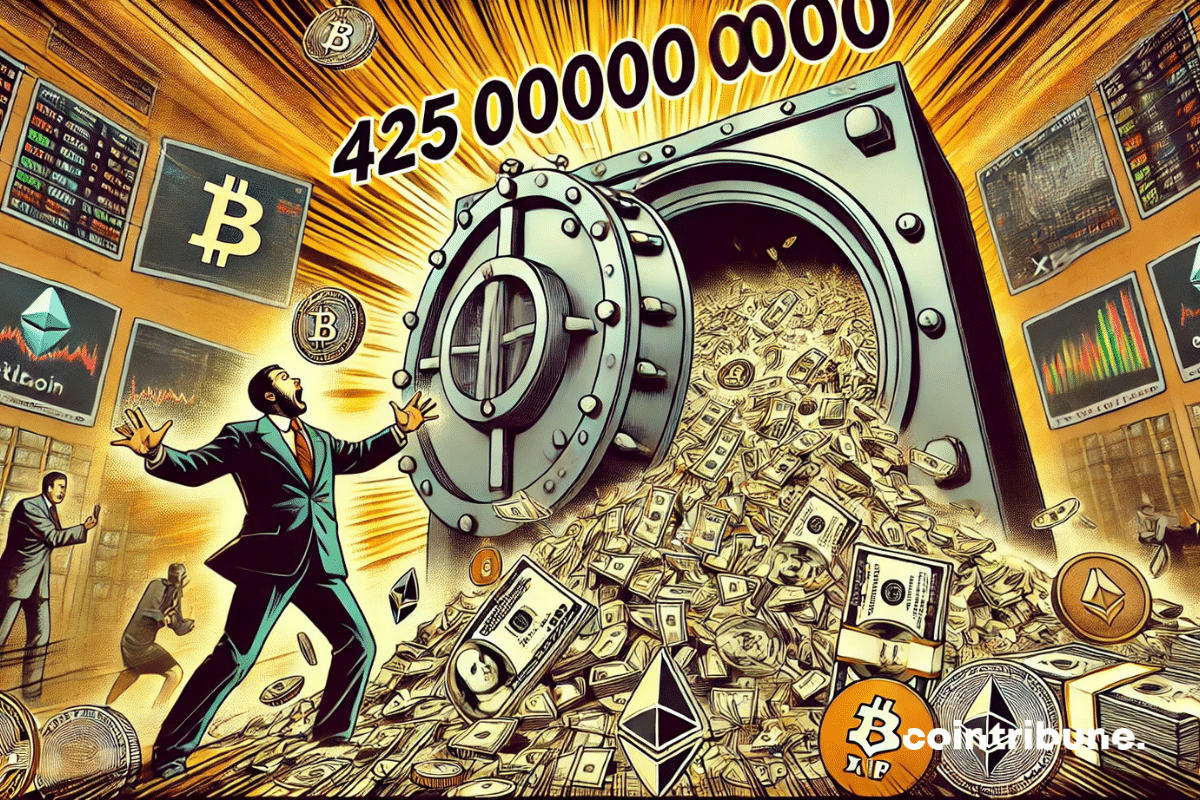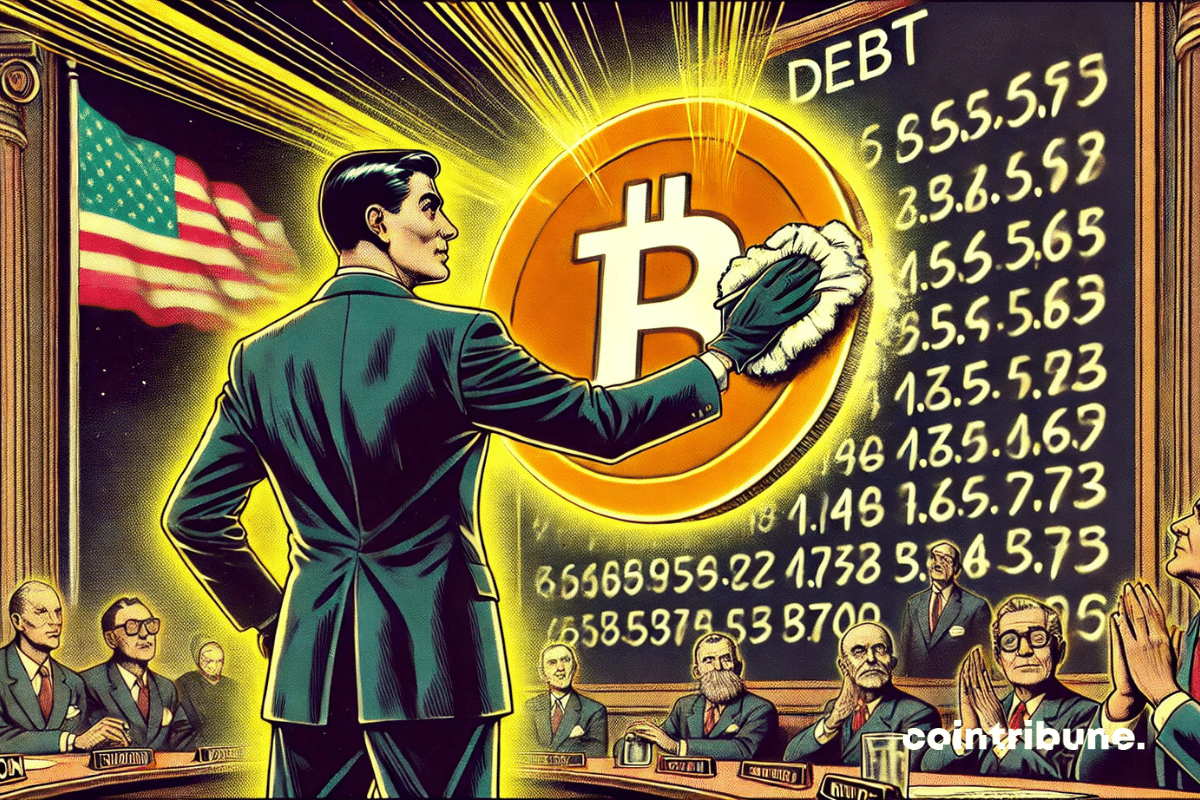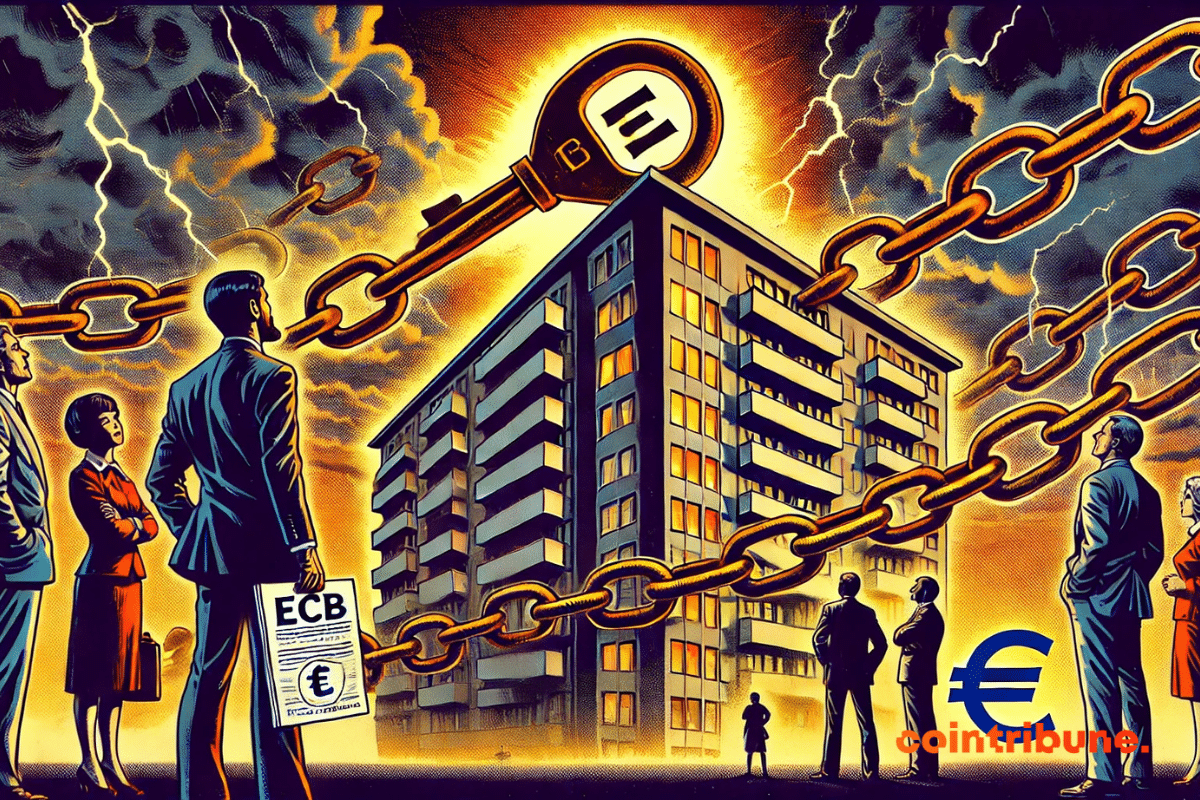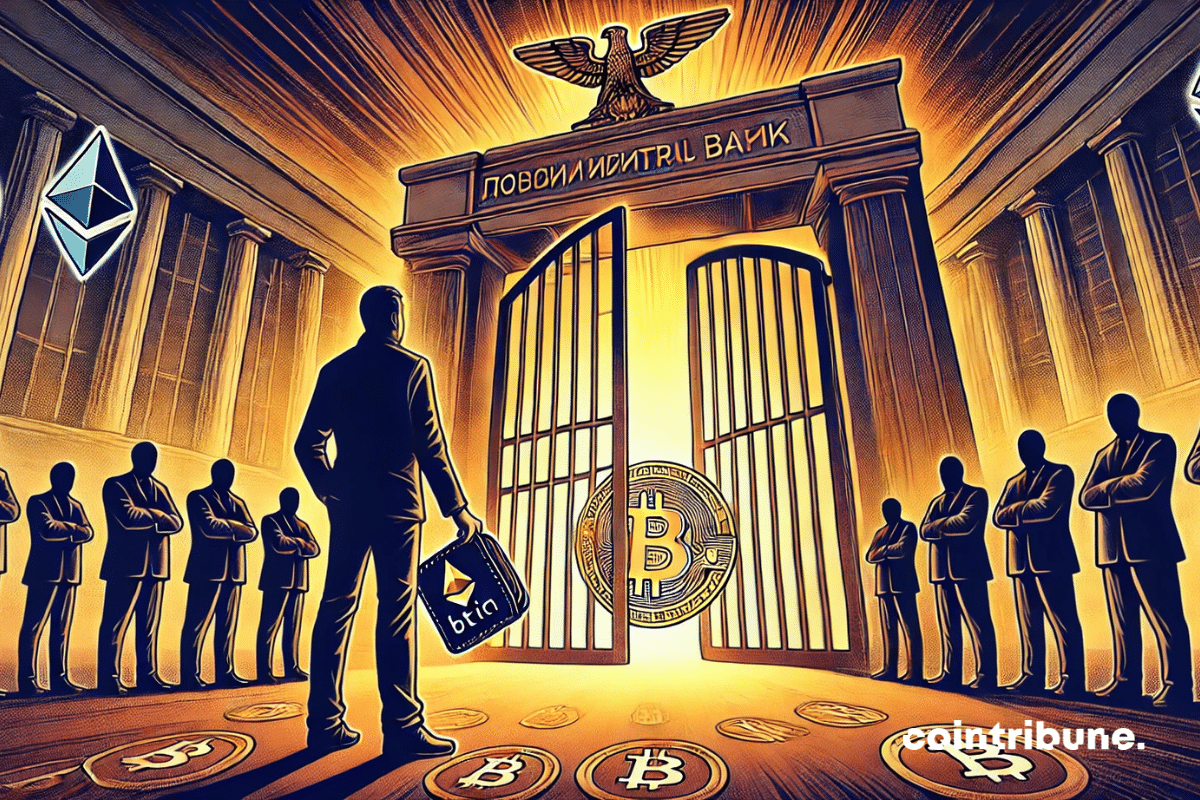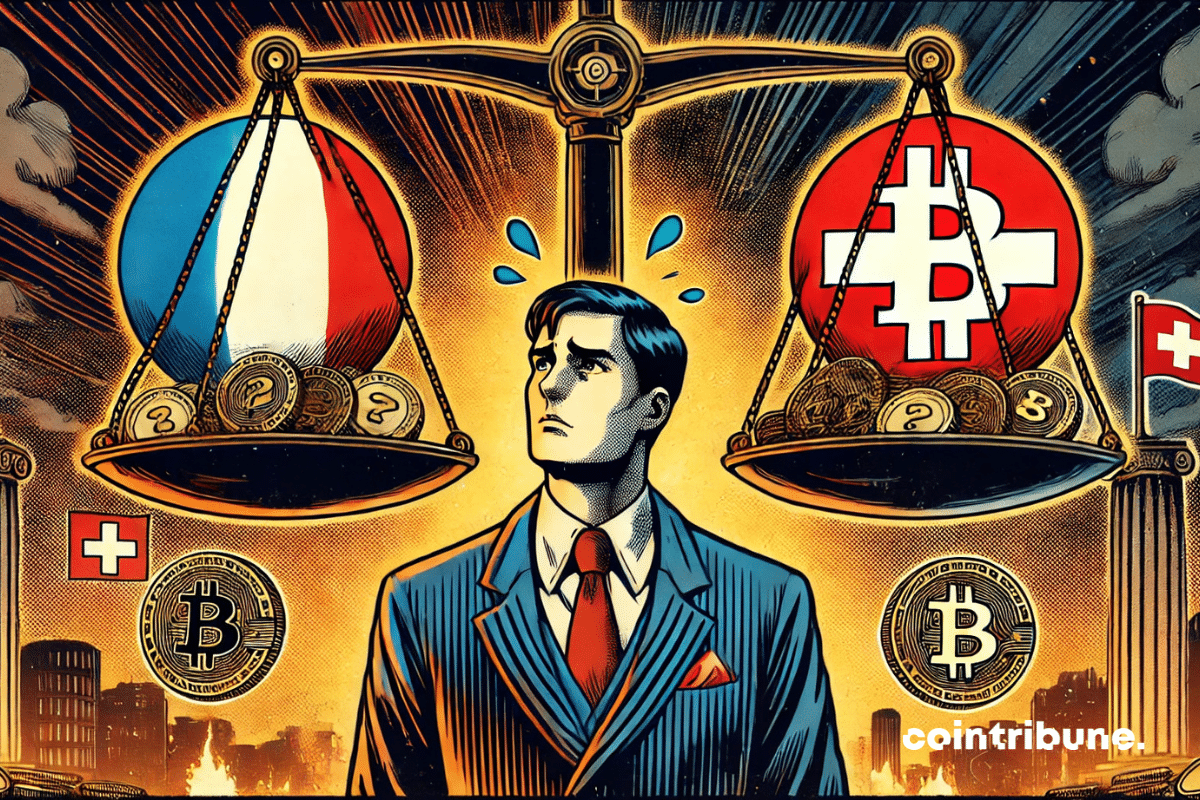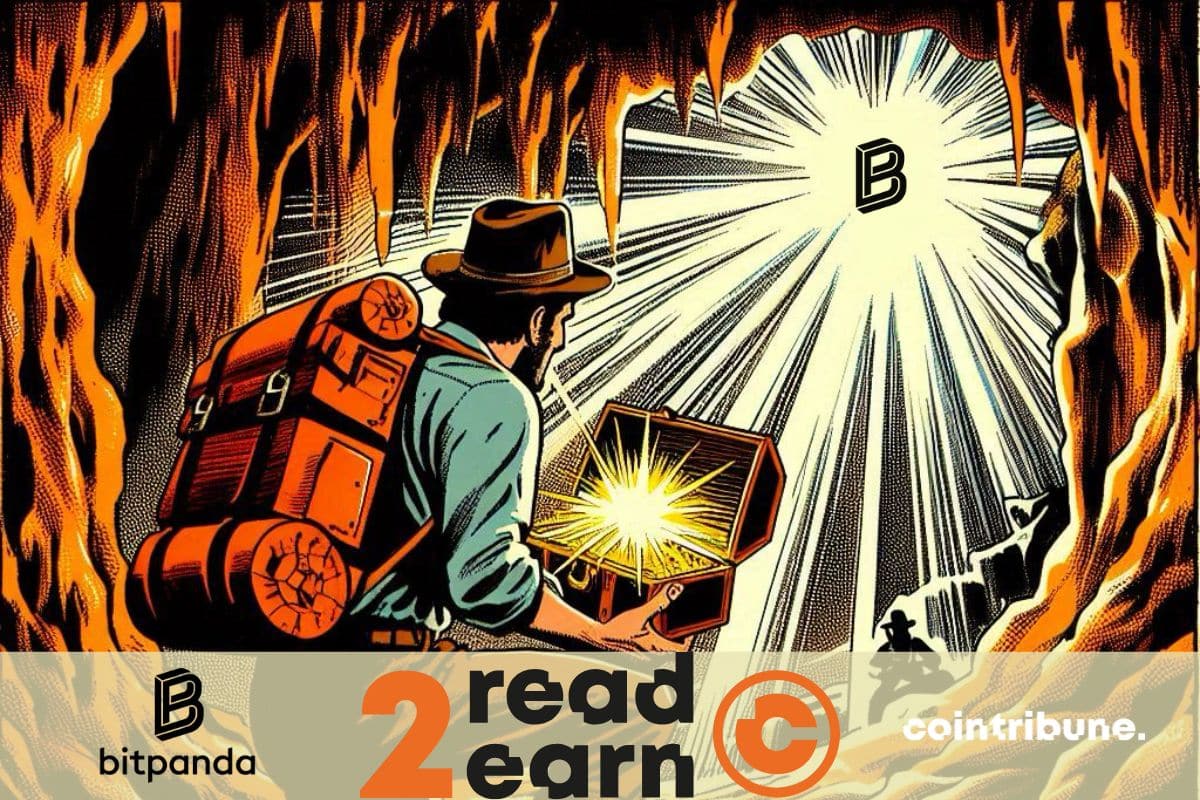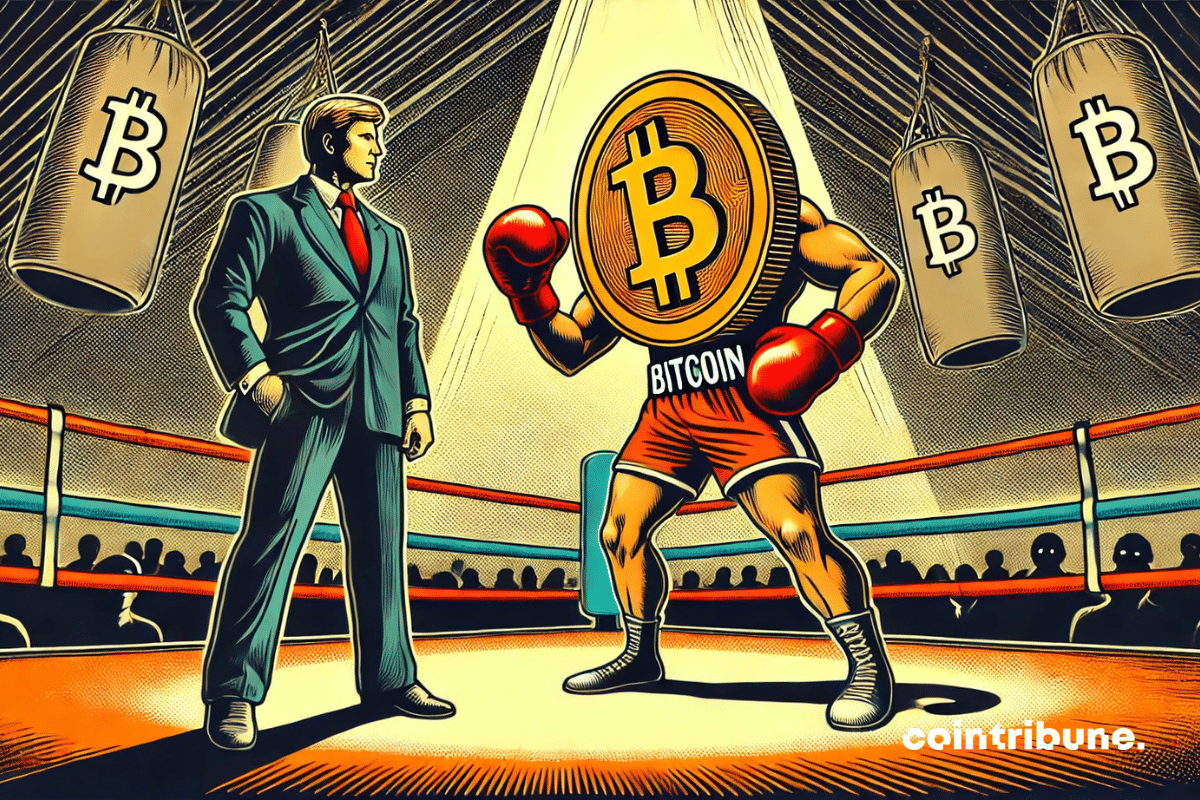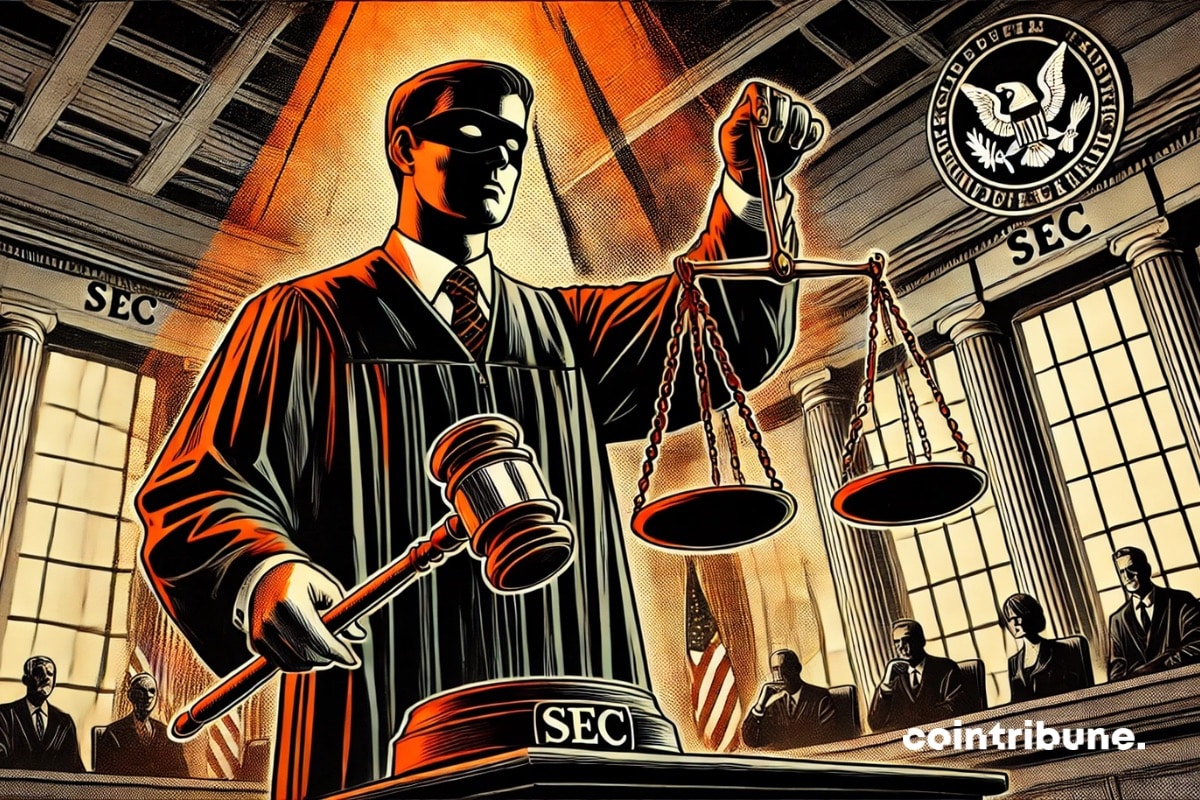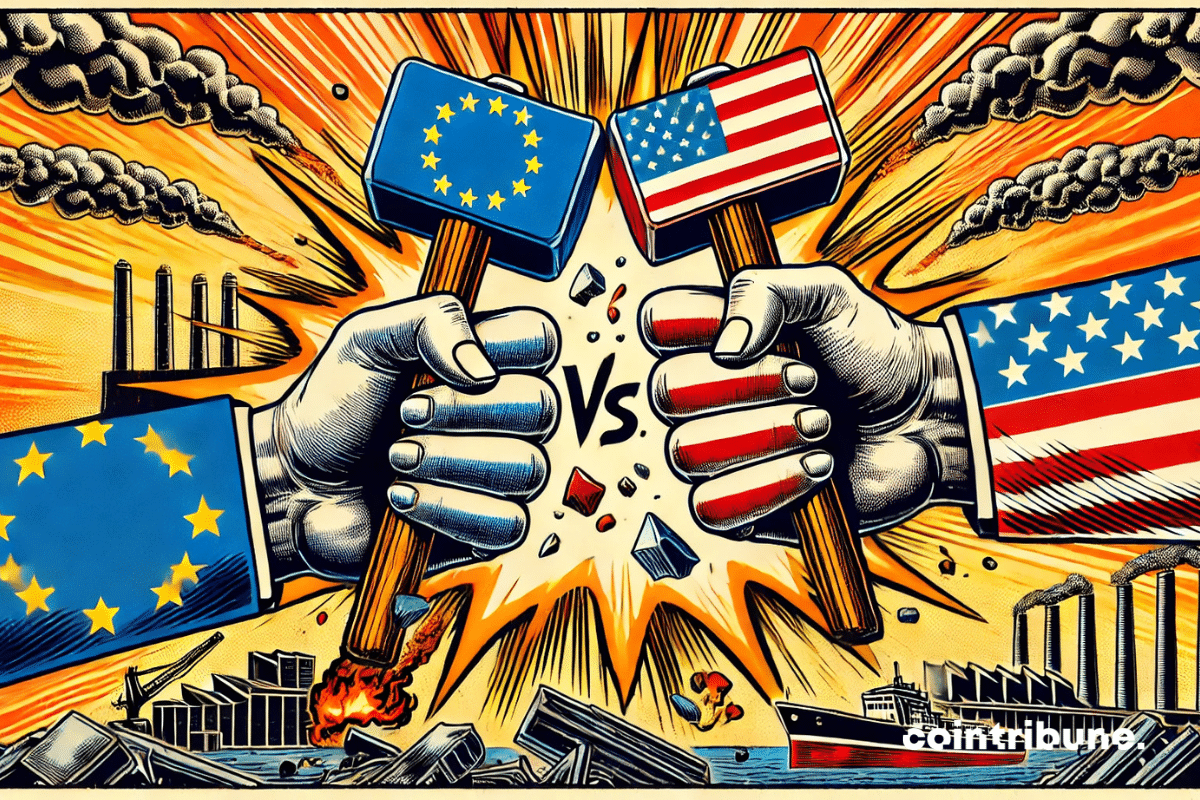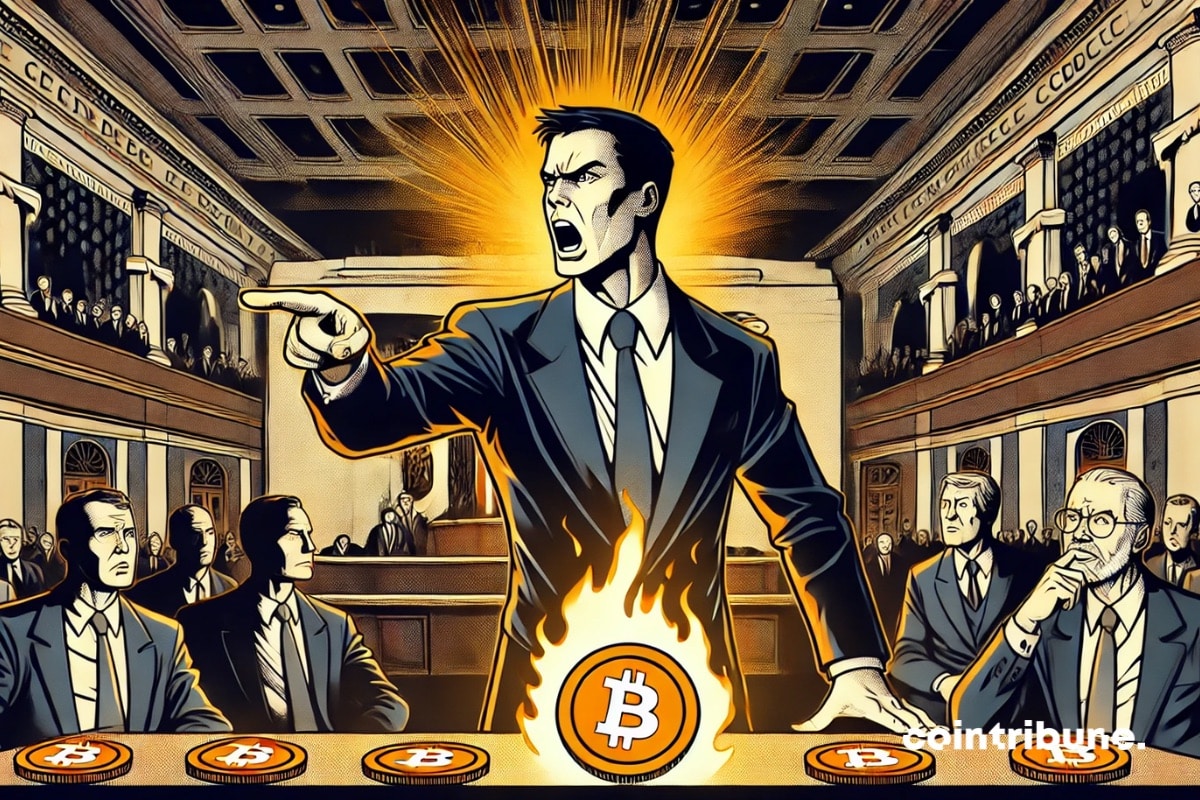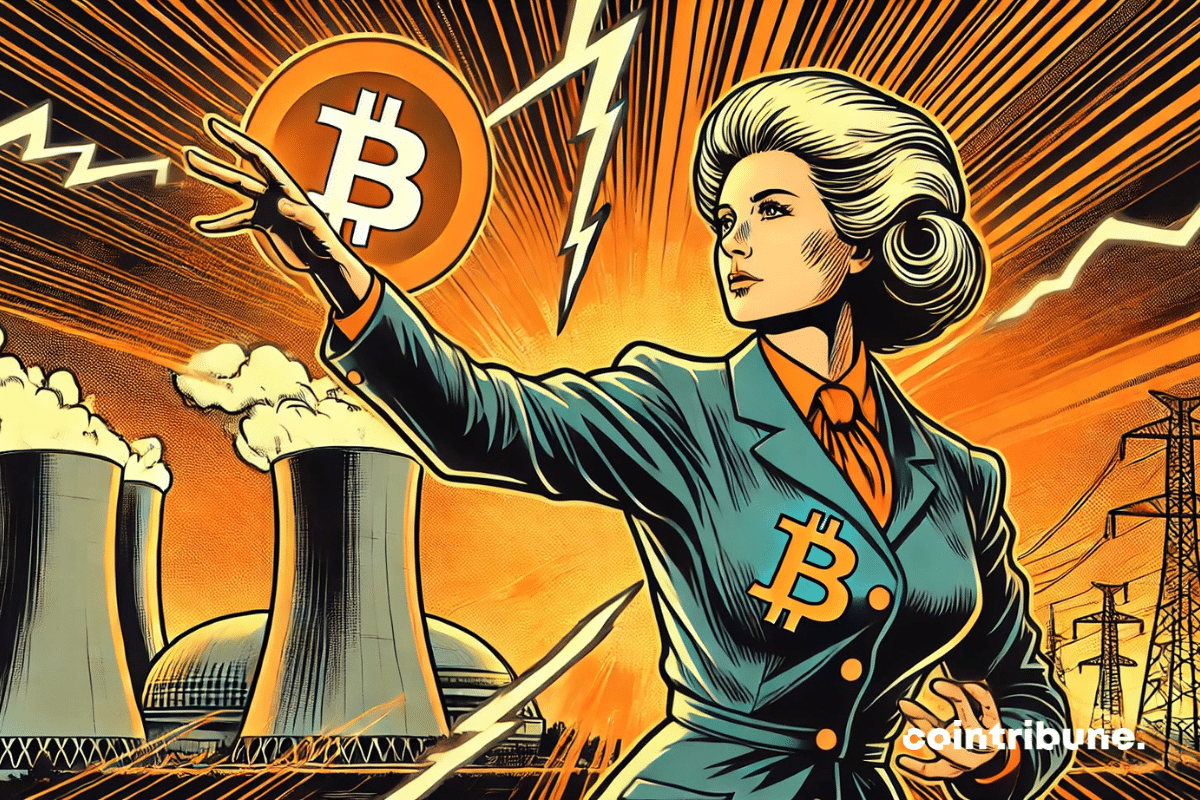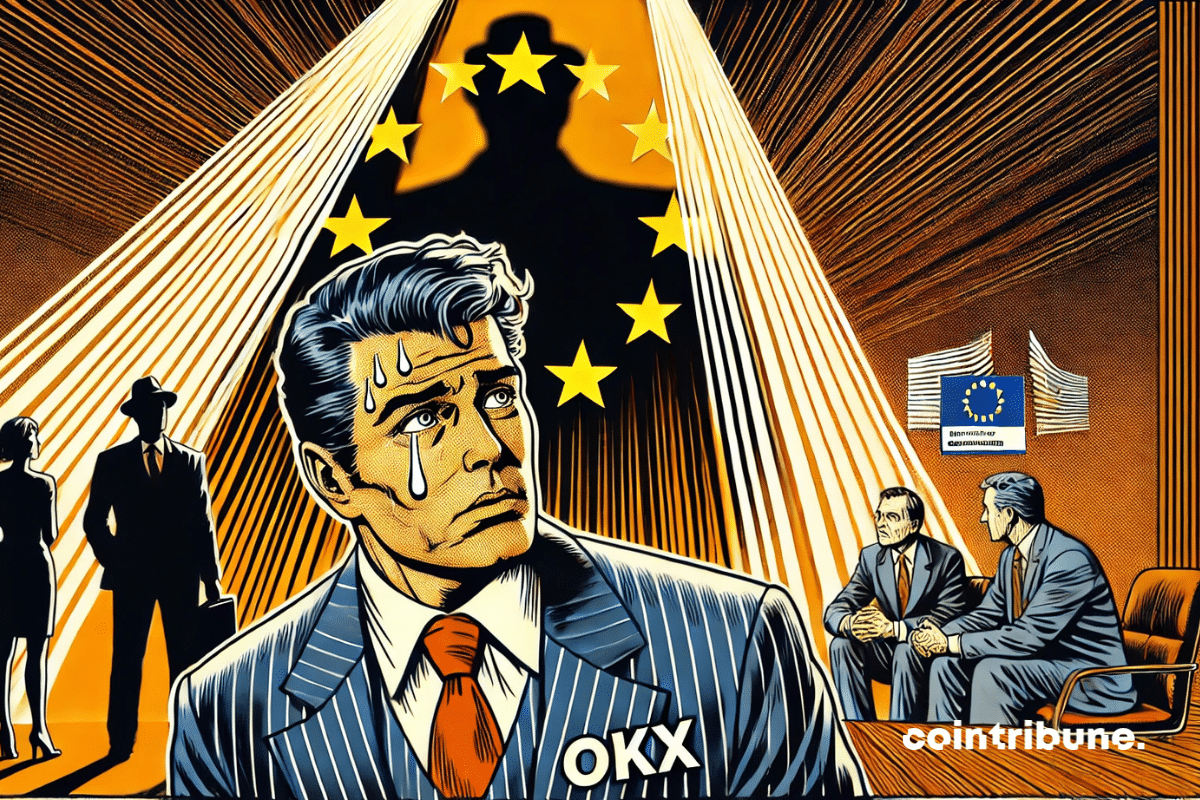CZ surprises everyone by revealing an exclusive excerpt from his book on crypto-assets. We provide you with the details in this article.
Coin Stats RSS
Bitcoin exchange-traded funds have maintained over 95% of their invested capital, despite a slowdown in inflows and a recent significant drop in price. This resilience, comparable to that of traditional stock ETFs, reflects a change in the behavior of crypto investors.
Ethereum Pectra update postponed! A new testnet is scheduled for March, but the final date remains uncertain. Details in this article!
Ethereum in free fall against Bitcoin: mere turbulence or alarm signal? As the ETH/BTC ratio hits its lowest level in 5 years, some traders are fleeing to more profitable altcoins. Should we follow the trend or wait for a rebound? Discover the analyses and strategies to not miss the next crypto wave!
According to the latest financial statements made public, at least six members of Donald Trump's presidential cabinet hold investments in bitcoin, with a combined total value reaching several million dollars. This revelation aligns perfectly with the president's promise to make the United States the "global superpower of Bitcoin."
Larry Fink sounds the alarm: Bitcoin could lead to a major crisis. Discover his full analysis in this article!
The Lazarus Group, a hacker collective affiliated with North Korea, continues its illegal activities by exploiting crypto. Recently, a transaction of 400 ETH, worth approximately 750,000 dollars, was identified on Tornado Cash, a platform known for anonymizing blockchain transactions. At the same time, the group has launched a new malware campaign targeting developers, confirming its evolution towards increasingly sophisticated attacks.
The crypto market is undergoing a transitional phase, marked by Bitcoin consolidation and stagnation of altcoins. However, several technical indicators suggest that a trend reversal is on the horizon. The $425 billion threshold on the market capitalization of altcoins, which has long been a major obstacle, may soon give way, paving the way for a surge in alternative assets.
In the trade tug-of-war between the United States and the European Union, a new episode has rekindled tensions. Indeed, Donald Trump, true to his protectionist approach, is once again wielding the threat of massive tariffs, this time on European wines and champagnes. The announcement of a 200% tax on these products follows Brussels' decision to increase tariffs on American whiskey to 50%.
The United States is preparing to accumulate millions of bitcoins. Goal: to lighten the burden of debt.
The European financial landscape has just undergone a major turning point with the European Central Bank's (ECB) decision to lower its key interest rates by 0.25 percentage points. This measure does not go unnoticed in a context where access to mortgage credit remains a key issue for households and investors. This decrease could stimulate demand and reshape market dynamics, but observers remain divided on its actual impact.
As cryptos disrupt traditional financial systems, Russia is taking a paradoxical approach. The central bank proposes to open exchanges to qualified investors while maintaining a cautious distance. This maneuver seems to balance control and innovation, but could it be hiding a more restrictive strategy?
Alephium, the innovative blockchain project focused on scalability and security, continues its expansion in terms of adoption and compatibility. Users can now securely store and manage their ALPH tokens thanks to the support of Tangem Wallet, a hardware wallet known for its simplicity and unique approach to managing digital assets.
The tax regimes for cryptocurrencies in France and Switzerland present significant differences. While Switzerland is known for its favorable tax conditions for private investors, France imposes a stricter taxation with a flat tax of 30% on capital gains realized. Here is a detailed comparison of the tax obligations in these two countries.
Dive into the exciting world of cryptocurrencies with Cointribune's new Read to Earn (R2E) quest on Bitpanda. This innovative initiative offers you the opportunity to learn about the crypto exchange while enjoying exclusive rewards. Don't miss this unique chance to combine knowledge and earnings!
Financial markets have their own memory, and cryptocurrencies are no exception. Thus, when an asset shows alarming similarities to a past crash, analysts sound the alarm. Ethereum, the second largest crypto on the market, sees its price plummet, reviving the specter of the March 2020 crash. Trader Ted Pillows claims that the current behavior of the ETH market almost mirrors the capitulation of that dark period, suggesting a scenario where the asset could drop to as low as 1400 dollars.
Bitcoin strengthens its hegemony in the crypto market, reaching a dominance of 61.2% according to recent data. This rise confirms the weariness of the recent altcoin rally, weakened by macroeconomic volatility. In the face of an uncertain context, investors are refocusing on BTC, perceived as a safe haven.
The former CEO of Binance, Changpeng Zhao (CZ), has made waves in the crypto community by mentioning a possible "altcoin season" following the announcement of a record $2 billion investment in the platform. This statement comes in the context of a recovery in the crypto market and has sparked enthusiasm among investors.
In the arena of Bitcoin, the giants play at their discretion while the newcomers flee. Binance watches, powerless, this grand ball of decentralized finance. End of the game or just an intermission?
The financial systems encountered significant disturbances at the start of 2025 after President Donald Trump enacted extensive import tariffs affecting Canada, Mexico, and China. President Trump initiated the new trade regulations, which imposed 25% duties on products from Canada and Mexico and 10% duties on Chinese exports to safeguard domestic businesses and correct commercial discrepancies. The tariffs caused disruptive effects throughout world markets, particularly in the cryptocurrency industry.
As the U.S. Consumer Price Index (CPI) shows a slight decline in inflation, Bitcoin holds its breath. At 3.1%, the number is below expectations, but the king of crypto paradoxically plunges from $84,000 to $83,000 in just a few hours. A paradox? Not really. Between hopes for interest rate cuts and political maneuvering, the landscape is becoming more complex. An analysis of a scenario where Bitcoin, lying in wait, could surprise the markets.
The U.S. Securities and Exchange Commission (SEC) may soon abandon its initiative to require certain crypto companies to register as exchanges. Mark Uyeda, acting chairman of the SEC, has asked the agency's teams to explore ways to waive this regulatory change.
The SEC's case against Ripple is reaching a decisive turning point. After more than four years of legal confrontation, the U.S. Securities and Exchange Commission (SEC) appears ready to close this emblematic case. This trial, one of the most publicized in cryptocurrency history, has raised a fundamental question: Is XRP a financial security subject to U.S. stock market regulations? While the stakes extend far beyond Ripple and its native token, the outcome of the case could reshape the regulatory approach to cryptocurrencies in the United States.
The crypto market is unpredictable, as it fluctuates between periods of euphoria and significant corrections. Among the most followed assets, Pi Network is generating increasing interest. Within 24 hours, its price saw a staggering increase of 20%, reaching $1.74, despite a discount of 44% from its all-time high of $2.99. This sudden surge raises questions: is it a precursor signal for broader adoption or merely a speculative push fueled by strategic announcements? Two factors appear to have triggered this movement: the anticipation of Pi Day and rumors of a possible listing on Binance.
The EU defends its economy against new American sanctions. We provide all the details in this article.
American Congressman Tom Emmer recently reaffirmed his support for stablecoins and his fierce opposition to central bank digital currencies (CBDC), which he sees as a threat to citizens' financial freedom. During a recent address on March 11, 2025, Emmer once again presented his pro-stablecoin bill aimed at promoting these digital assets while curtailing the development of CBDCs in the United States.
The rapid rise of the Solana network at the beginning of the year seemed to herald a new era for its ecosystem. Fueled by an unprecedented speculative frenzy around memecoins, the blockchain recorded record revenues, reaching $55.3 million per week. However, the party was short-lived. Within weeks, the excitement evaporated, leading to a brutal collapse. Today, Solana's weekly revenues have fallen back to $4 million, a staggering drop of 93%. This sudden turnaround raises a central question: Can Solana survive the end of this euphoria and find a sustainable growth model? On one hand, the frenzied speculation around meme coins has revealed an undeniable pull of the network, but on the other hand, its dependence on these ultra-volatile tokens undermines the entire economy.
Nuclear energy and cryptocurrencies: an unlikely marriage? Marine Le Pen, a significant figure in the French political landscape, has shaken things up by linking these two worlds. During a visit to the Flamanville EPR, she outlined a vision where surplus nuclear electricity would power Bitcoin mining.
As cryptocurrencies reshape the boundaries of finance, the United States takes a historic step. The Bitcoin Act of 2025, submitted to the House of Representatives, proposes to create a strategic reserve of one million BTC over two decades. A bold maneuver, blending financial innovation and geopolitical vision. Far from being a simple accumulation of digital assets, this project embodies a strategic realignment in the face of digital gold. Explanations.
Accused, scrutinized, tracked, OKX denies it outright. Bybit cries wolf, regulators hesitate. Crypto trembles under the shadow of tightening regulation.







